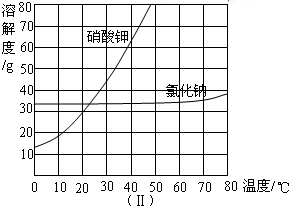Are you a man or a mouse? When people ask this question they want to know __36_ you think you are a _37_ person or a coward(懦夫). But you will never really know the answer to this question __38__ you are tested in real life. Some people __39__ they are brave but when they come face to face with real __40_ , they act like cowards. Others think of themselves as cowards, but when they meet danger, they act like __41_. Lenny had always thought of himself as a __42__ person. He got worried before examinations. He worried about his job and his health. All he wanted in life was to be safe and healthy. __43__ , on January 15th, 2002, a plane crashed into the Potomac River in Washington. Lenny went to the river to see what was happening. He saw a woman in the __44__ water. Lenny did not feel afraid. He kept very __45__ and did a very courageous thing. He jumped into Potomac, __46__ to the woman, and kept her head __47__ the water. Seventy-eight people died that day. Thanks to Lenny, it was not __48__ . When you are in a very __49__ situation and feel afraid, the body automatically(自动地)produces a chemical in the blood. This chemical is called adrenalin(肾上激素). __50__ adrenalin in the blood system, you actually feel stronger and stronger and are __51__ to fight or run away. However, when you are absolutely terrified, the body can produce too much adrenalin. When this __52__ , the muscles become very hard and you find you __53__ move at all. You are paralyzed(使无能为力) with fear. This is __54__ when we are very frightened, we sometimes say we are ‘petrified’, this word comes from a Greek word ‘petros’, which means ‘stone’. We are __55__ frightened that we become stonelike.
|
小题1:C
小题1:A
小题1:B
小题1:C
小题1:D
小题1:C
小题1:C
小题1:C
小题1:D
小题1:B
小题1:D
小题1:C
小题1:D
小题1:A
小题1:A
小题1:C
小题1:C
小题1:B
小题1:D
小题1:D
本文是叙述一个人是勇敢还是懦弱,关键是看面临危险处境时的表现。
小题1:C。根据后面的or来判断应该用if来引导宾语从句,表示你“是否”认为你是一个勇敢的人还是一个懦夫。
小题1:A。与后面的a coward相对应, 应填“勇敢的”。
小题1:B。因为前面有否定词never,相当于not,因此选until,not...until表示“直到……才”。
小题1:C。根据下文的内容答案只能选think。
小题1:D。根据下文they act like cowards来判断,有些人自认为勇敢,当“面临危险”的时候,举止却像懦夫。
小题1:C。与上文相反进行对比论证,有些人看起来像懦夫,但当遇到危险的时候,实际行动就像“英雄”一样。
小题1:C。根据后面两句中的worried来判断,答案应该是与懦夫相近的词,只有“紧张的”人与懦夫意思相近。
小题1:C。从上下句来看是表示时间的先后,用then来承接后来所发生的事。
小题1:D。因为美国的季节与中国的相近,时间又是元月五号,所以水是“冰冷的”。
小题1:B。根据上文的不害怕可知,他应该是保持“冷静”,其余选项不符合语境。
小题1:D。因为他跳入水中,所以是“游”向那位妇女。
小题1:C。根据常识,人掉在水中,头应该在水“上”能够呼吸,不呛水,其余选项不符合语境。
小题1:D。根据前面的seventy-eight来判断,她不是第七十九个遇难者,而是获救了。
小题1:A。根据后面的“害怕”可判断出答案。
小题1:A。根据对后面句子的内容的逻辑推理可知,前面应是血里如果“有”了肾上腺素,你就会感到越来越强……。
小题1:C。根据上文,血里有肾上腺素,你就会越来越强壮随时“准备”搏斗或跑开。be ready to do sth.是“准备、乐意做某事”。
小题1:C。根据上一句话,得出答案:当这种情况“发生”时,肌肉就会变得僵硬。这也是医学常识。
小题1:B。根据上文,肌肉变硬了,结果你就一点也“不能”动了。
小题1:D。根据前后的因果关系,这是说明原因的,why引导表语从句,表示“原因”。
小题1:D。根据前后的因果关系,这是说明原因的,why引导表语从句,表示“原因”。
该句后面省略了that,“so+形容词+that...”是一个固定句型。

